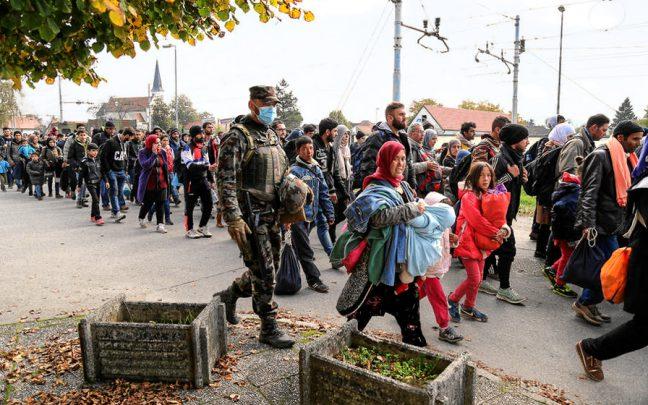They said people make mistakes and learn from history.
They said America is the land of opportunities, the world’s leading superpower and the role model for less developed countries — the mother figure who takes in the struggling child who needs help when all goes wrong. Yet the U.S. has continually chosen to remain lethargic toward the Syrian refugee crisis.
Government officials continue to use security concerns as a means of keeping American lives “safe and secure,” as innocent Syrians pay the price. You would think that a country as powerful and developed as the U.S. wouldn’t allow for serious atrocities to occur, especially given our past apathy during the Holocaust — yet here we are watching history repeat itself.
We’ve read in textbooks about the tragedy the world will never stop mourning. We’ve heard over and over again about the gas chambers and concentration camps that Jewish refugees were subject to. Many of the refugees saw the U.S. as a safe haven to build a new life in the land known for opportunity.
Of course, the Holocaust and Syrian refugee crisis are fundamentally different — the cause of the mass genocide of Jews in the mid-20th century does not mirror the reasons for the ongoing Syrian crisis. U.S. apathy in both instances, however, remains the same.
As the Syrian Civil War prevails, the amount of Syrian refugees looking for a way out rises. Since the start of the Syrian War, the U.S. has accepted a mere 1,285 of Syria’s nine million refugees. Many in the U.S. argue that ISIS fighters might slip into the U.S. by disguising as refugees, just as we feared Nazi agents would pose as Jewish refugees during WWII, according to Max Paul Friedman, a history professor at American University. In an interview with Think Progress, Freidman said, “We have a very long tradition of exaggerating the threat that refugees might pose.”
In an attempt to keep America’s security in check, we have slowed the admission process for refugees coming into the U.S. Similarly, as refugees attempted to flee Germany during WWII, the U.S. immediately amped up its security system by only accepting a limited amount of refugees. The competition for getting a visa increased, and essentially started what we now know as the refugee process.
As we look to WWII with the lens of the Syrian Civil War today, it’s difficult to ignore haunting similarities between the two. Today, refugee applicants to the U.S. wait more than two years for processing of their application, while in Germany, the process takes a mere 5.3 months, allowing them to accept more than a million more Syrian refugees in a timely manner.
U.S. lawmakers recently sent a letter to Obama claiming the “surge of admissions of Syrian refugees poses a high security risk to our country.” Officials believe that extremists could slip through the cracks. But as the Obama administration attempts to dispel this fear-mongering, we must remember that in a few months, the Obama administration will no longer have this control.
Looking at the history of Syrian refugees allowed into America, not one successful act of terrorism has been committed by them. We look at the polls and examine that in WWII, an overwhelming majority — 60 percent — of Americans opposed resettling roughly 10,000 Jewish refugee children in the U.S.
Looking at polls today, we observe that once again, more than 50 percent of Americans believe the U.S. should bring in less Syrian refugees. And though we feel shame when we look to the Holocaust and regret that we chose fear over humanity, we continue to choose to allow civilians to die in the name of our security.
So like it or not, the United States has a history of turning away the people who need us most, making this a cornerstone of our foreign policy.
We choose to let nine million suffer to protect ourselves from the risk of one corrupt intruder, just as we did before. The Holocaust was a tragic disaster the world doesn’t want to see again, and should have served as a lesson to maintain security without abandoning the values America stands for, but we are on a fast track to realizing this too late.
Zahiah Hammad (zhammad@wisc.edu) is a freshman majoring in political science and biology.


